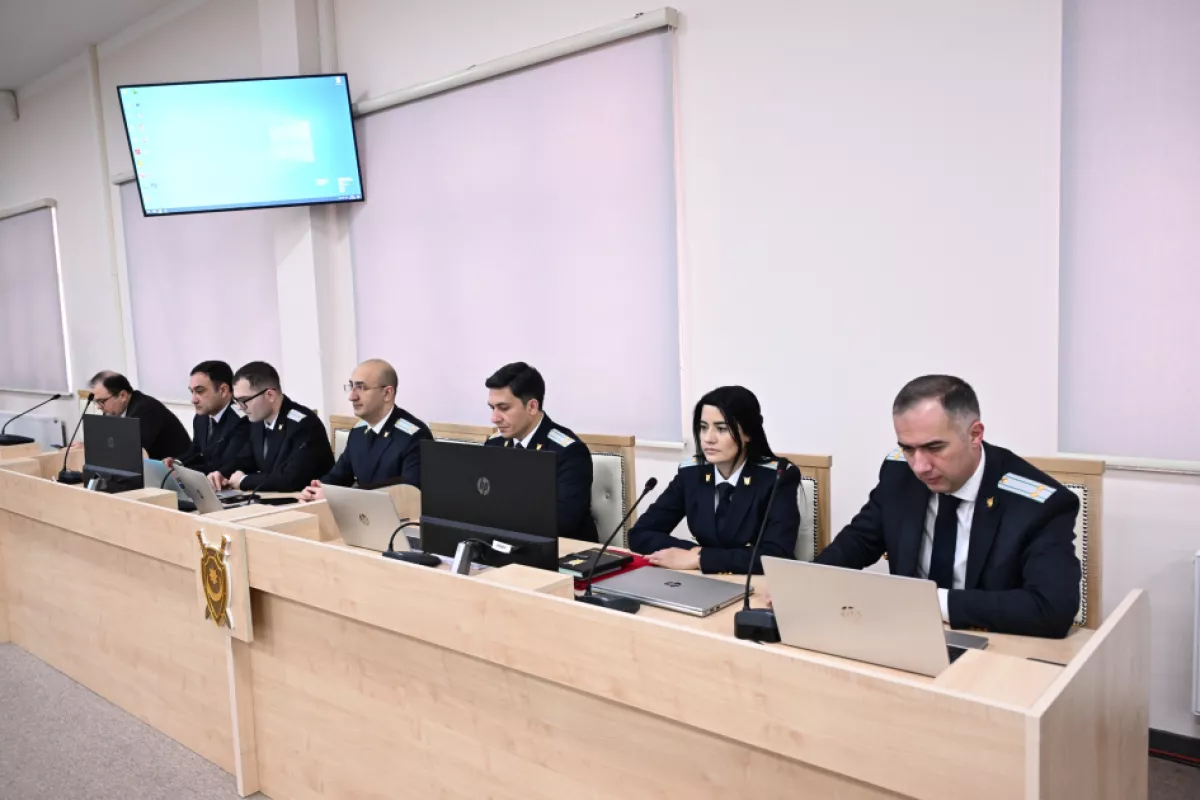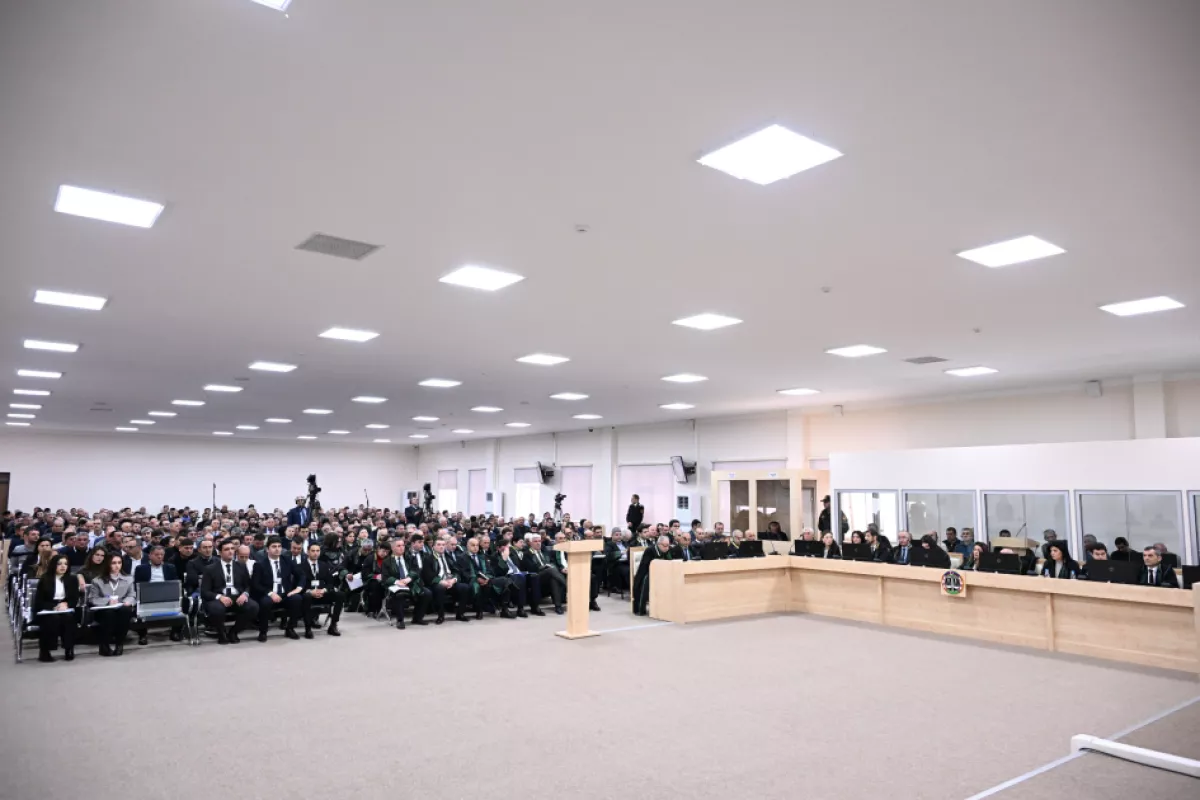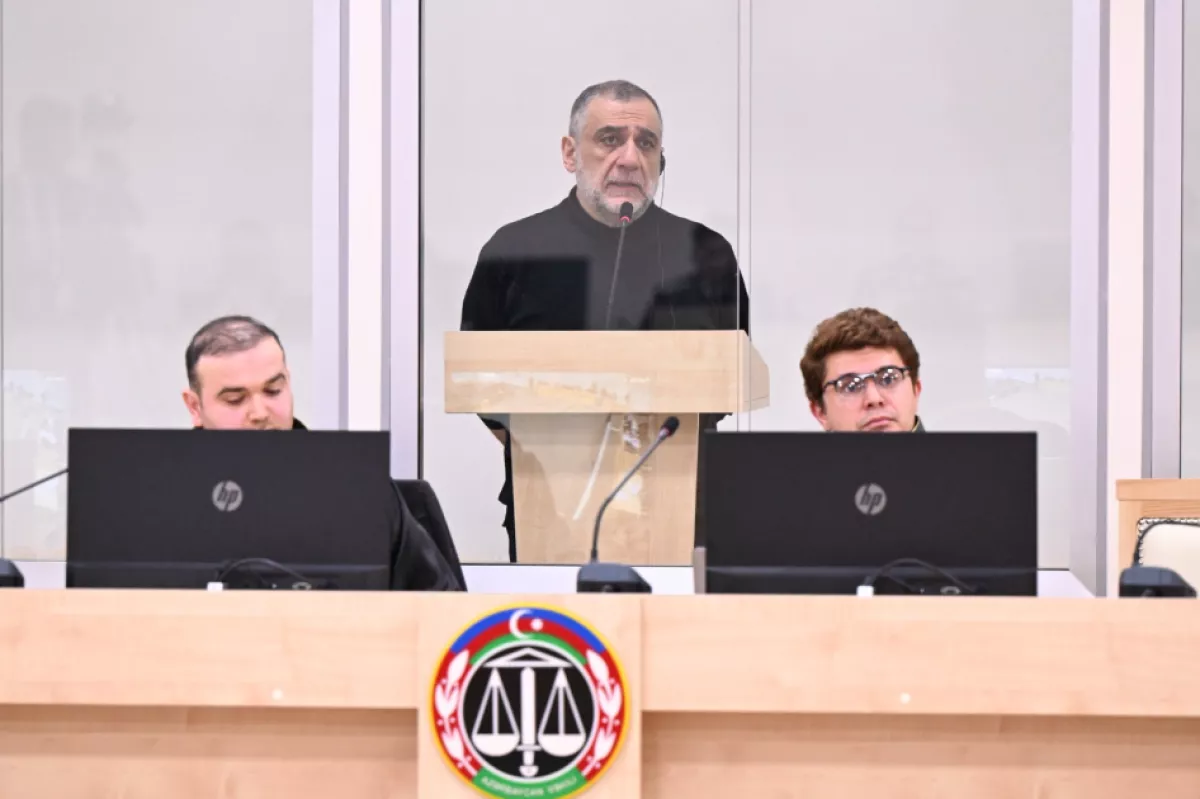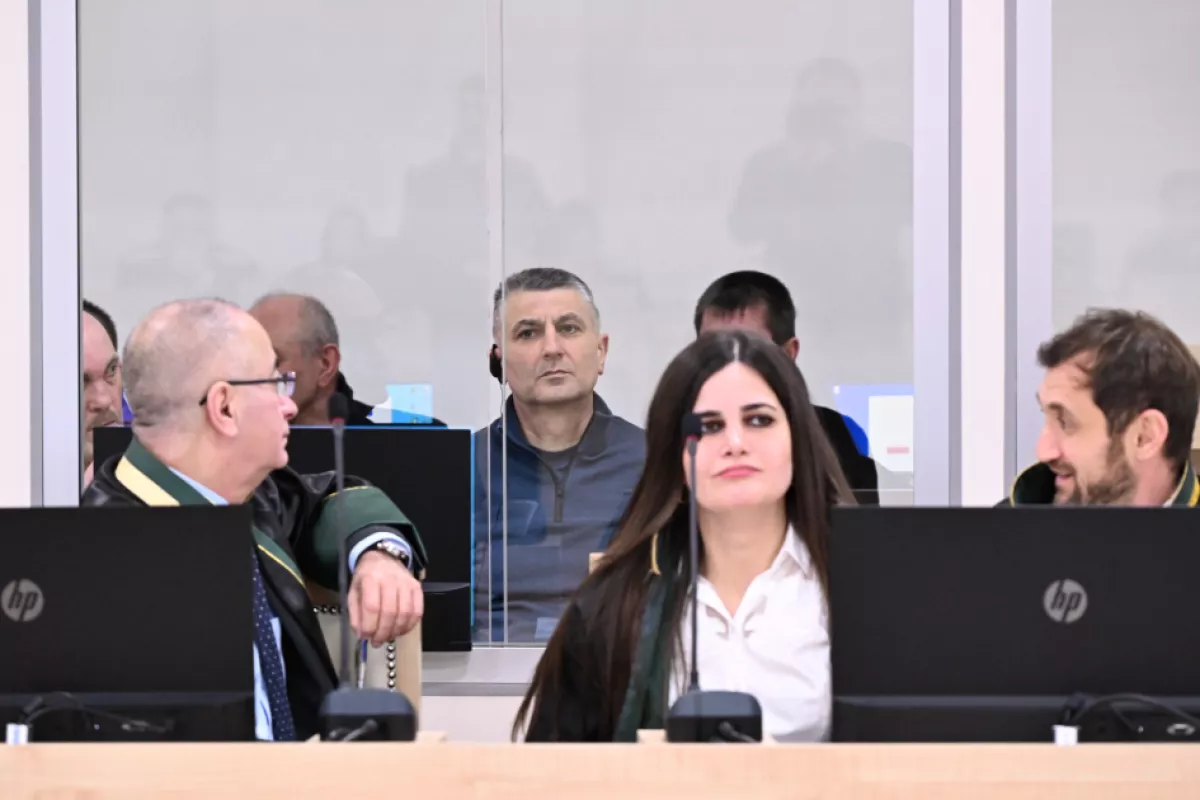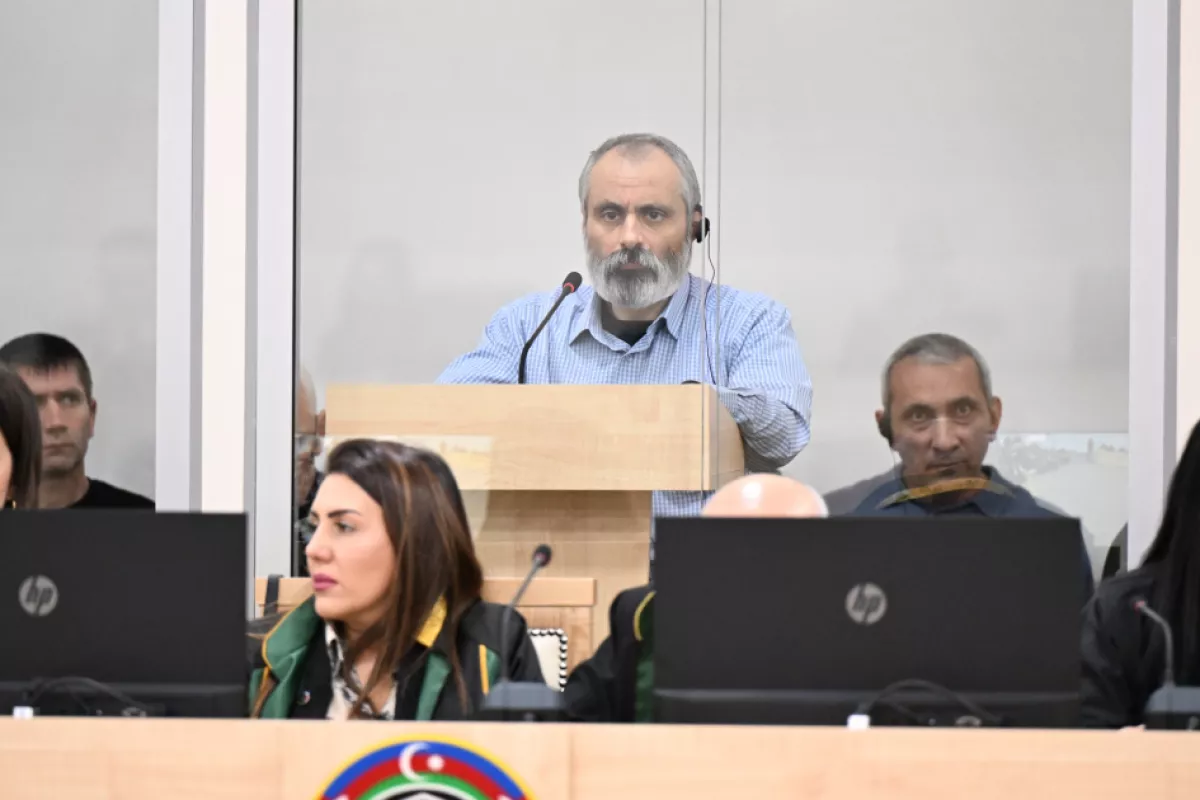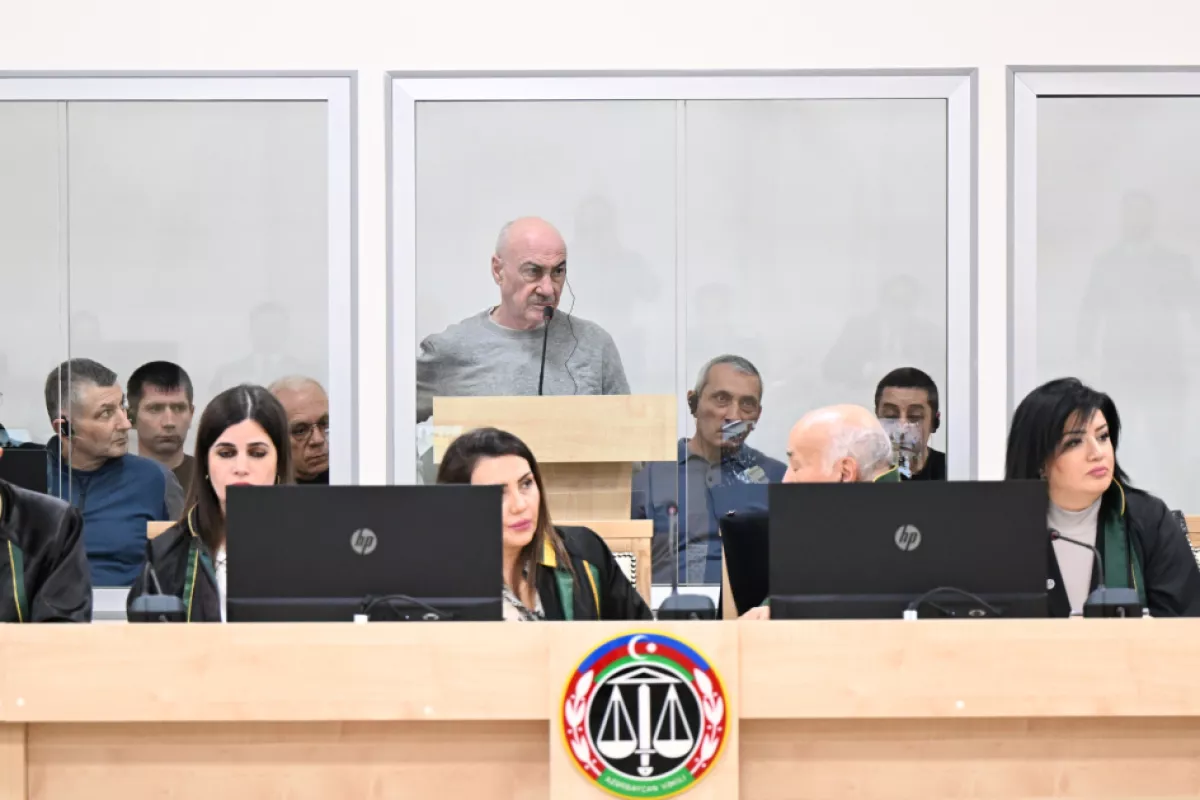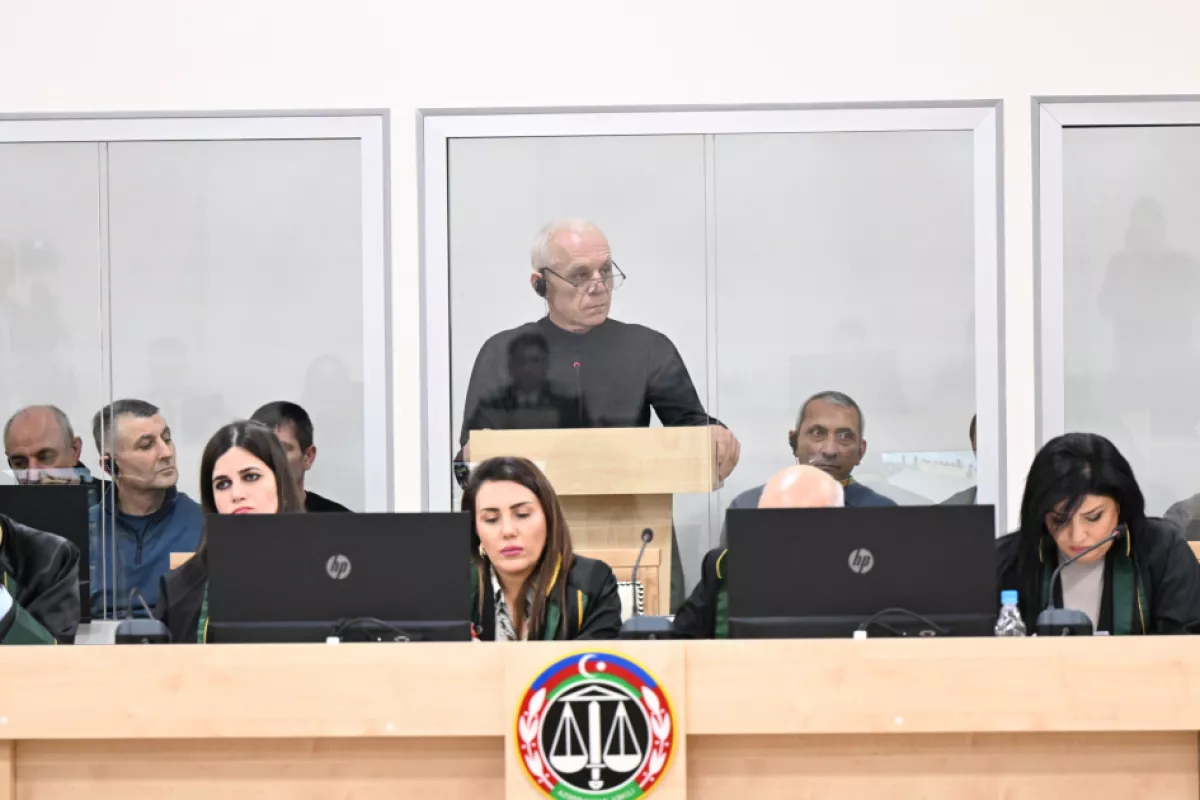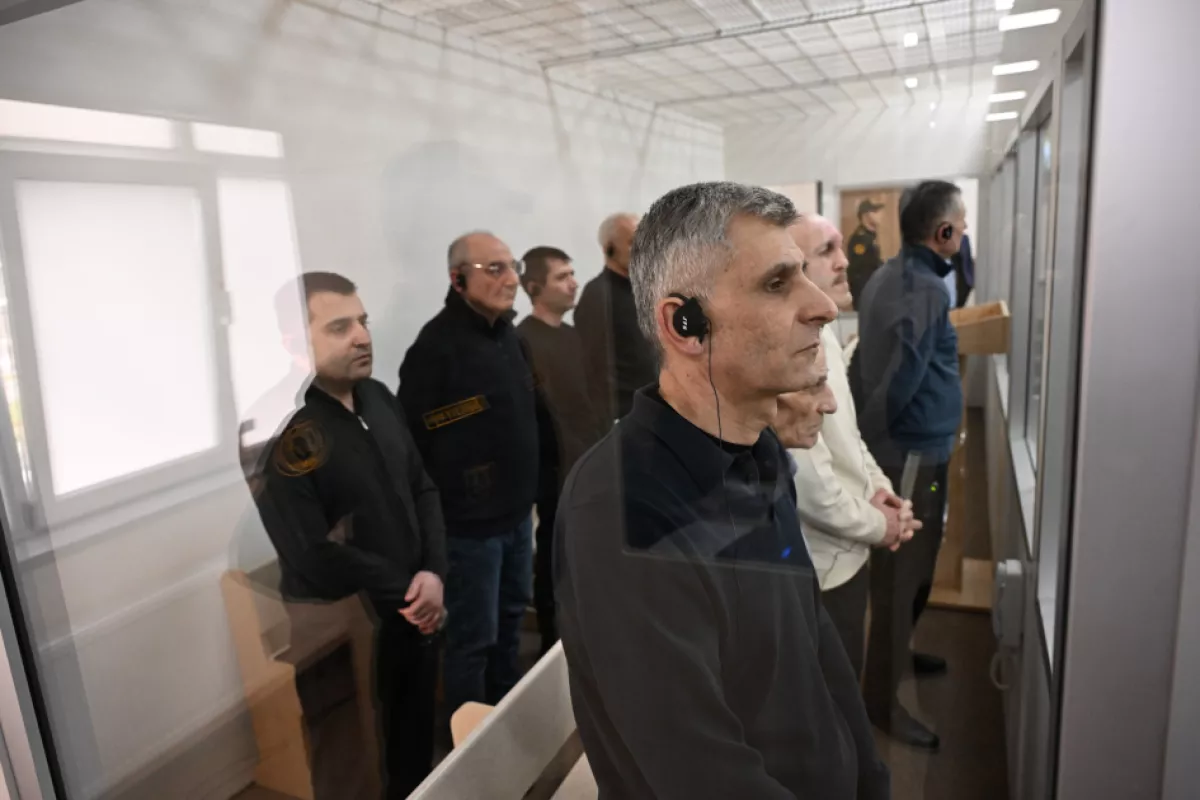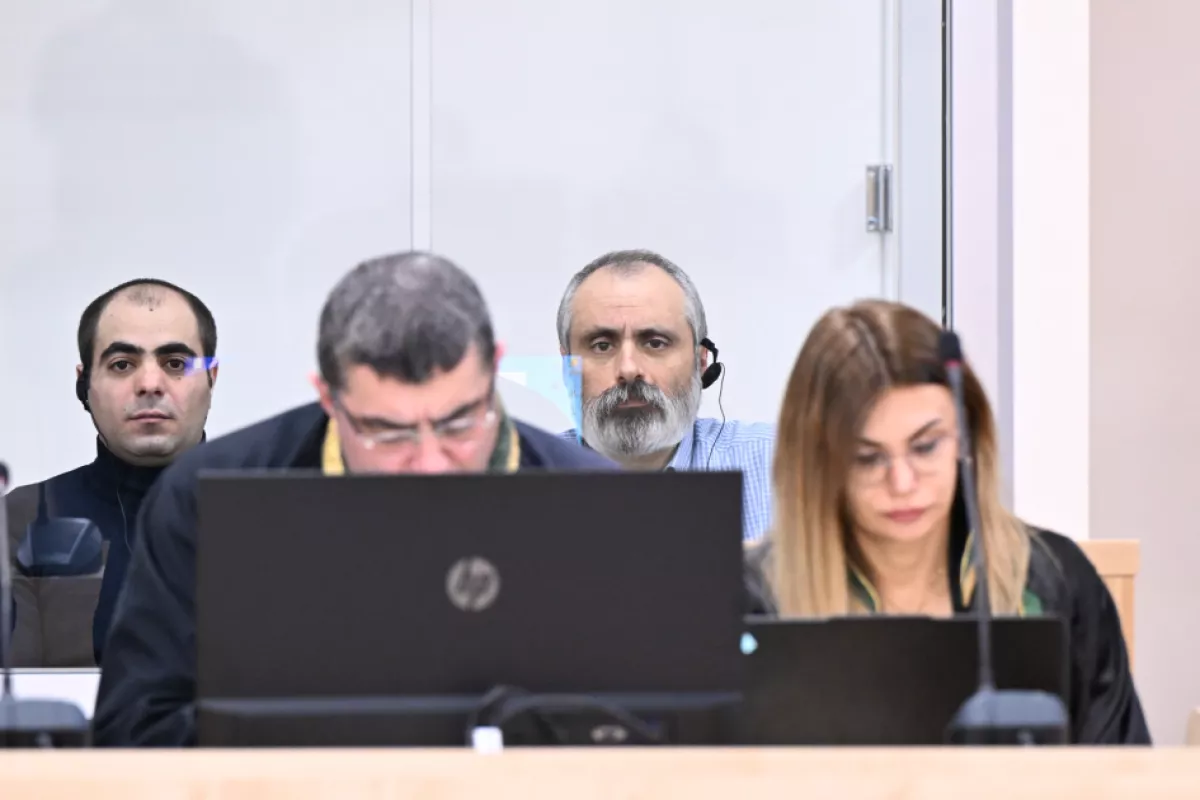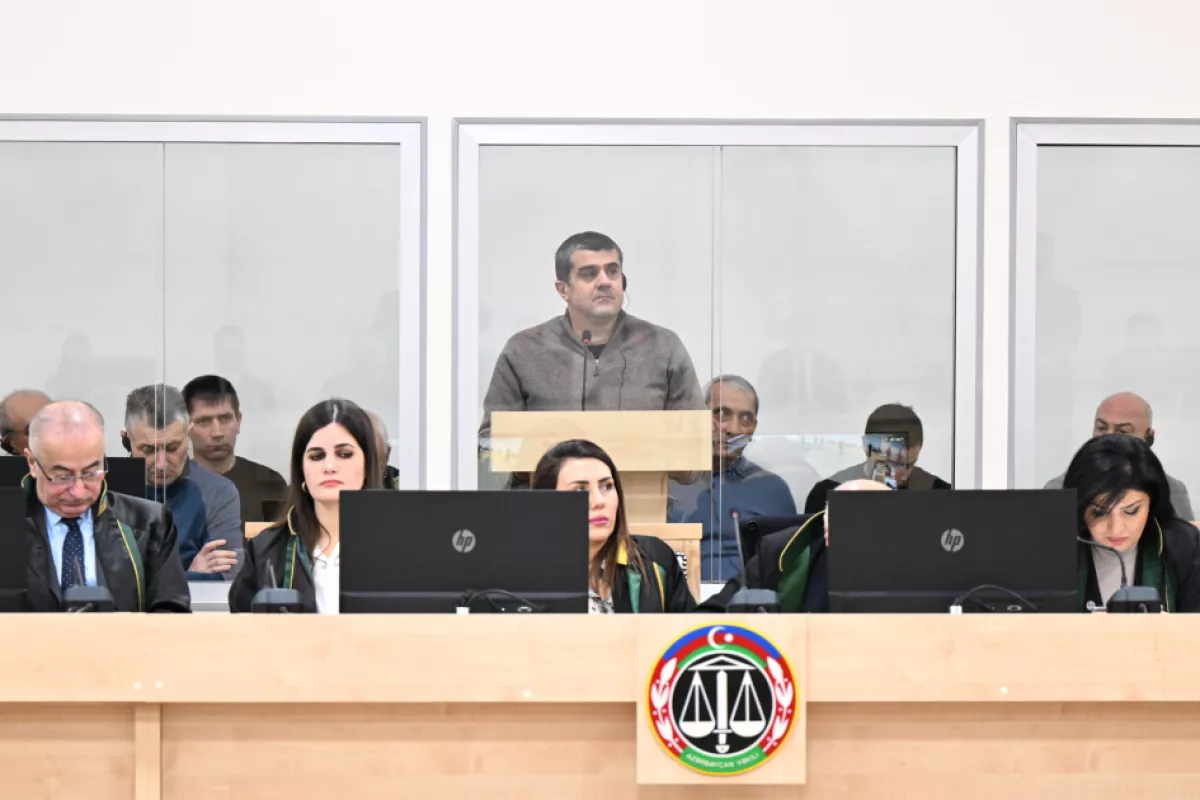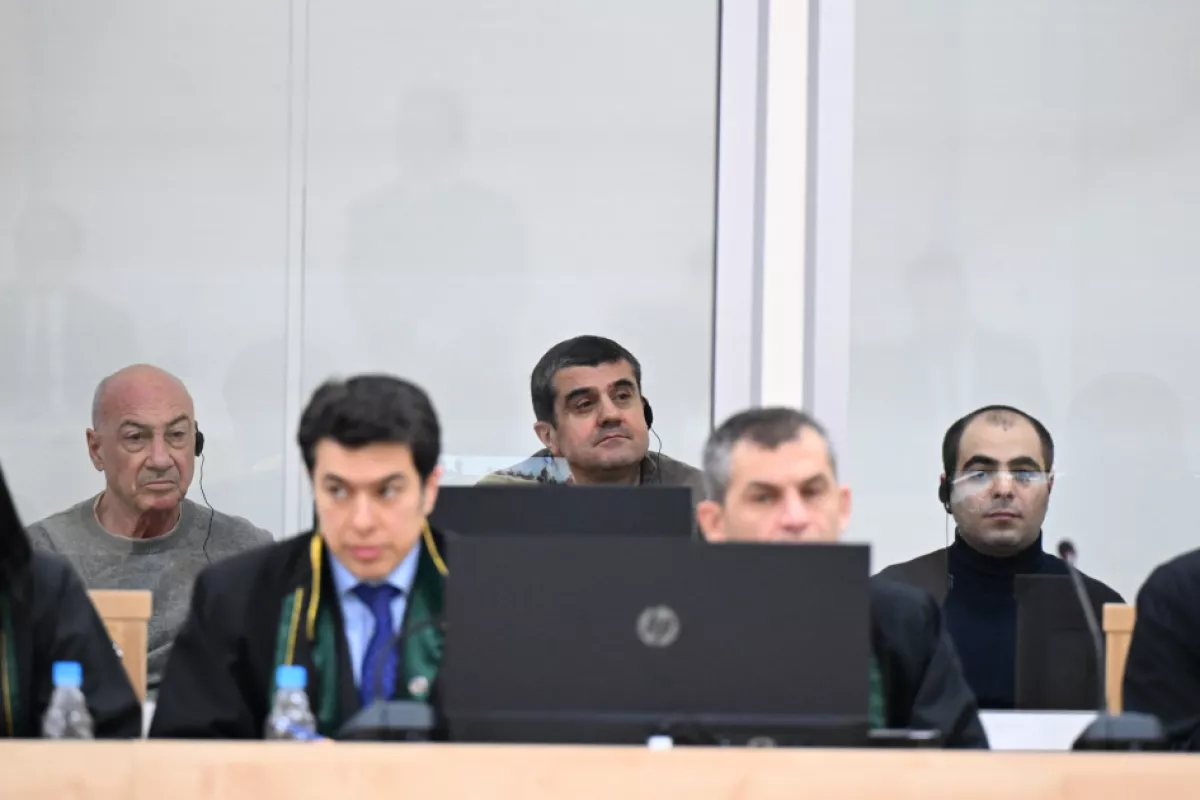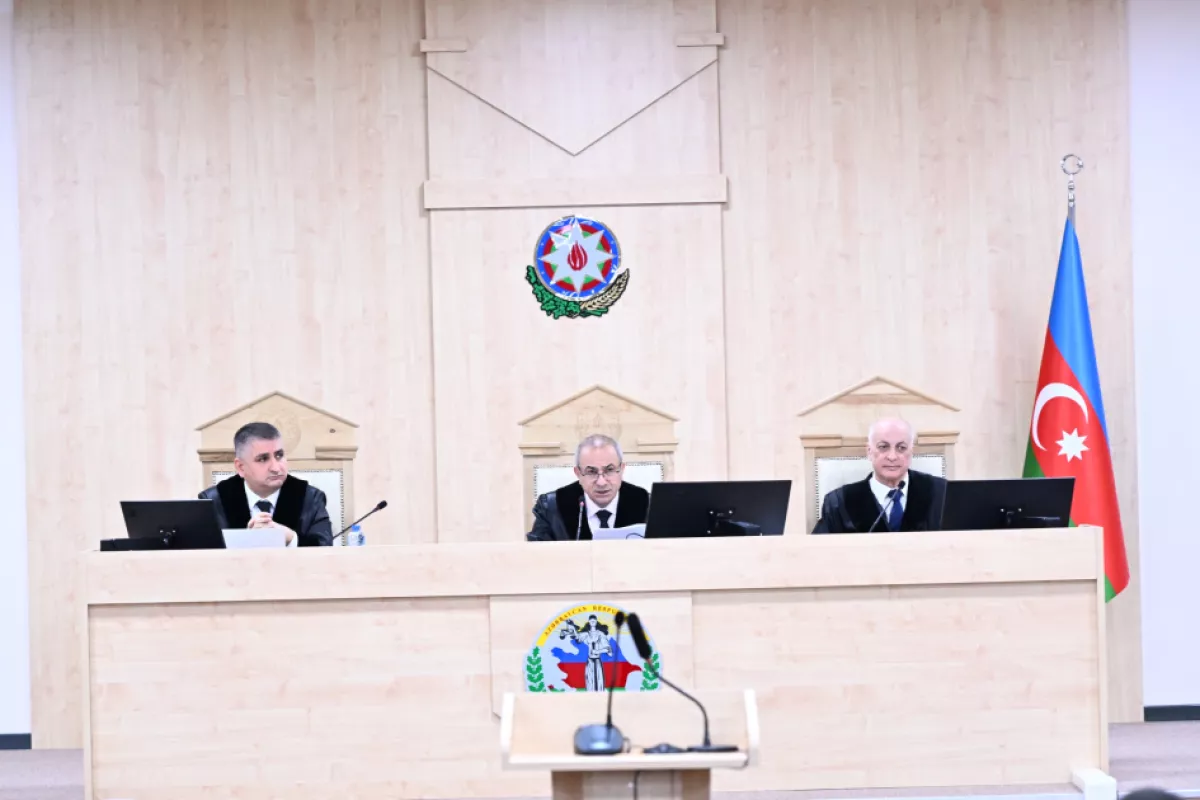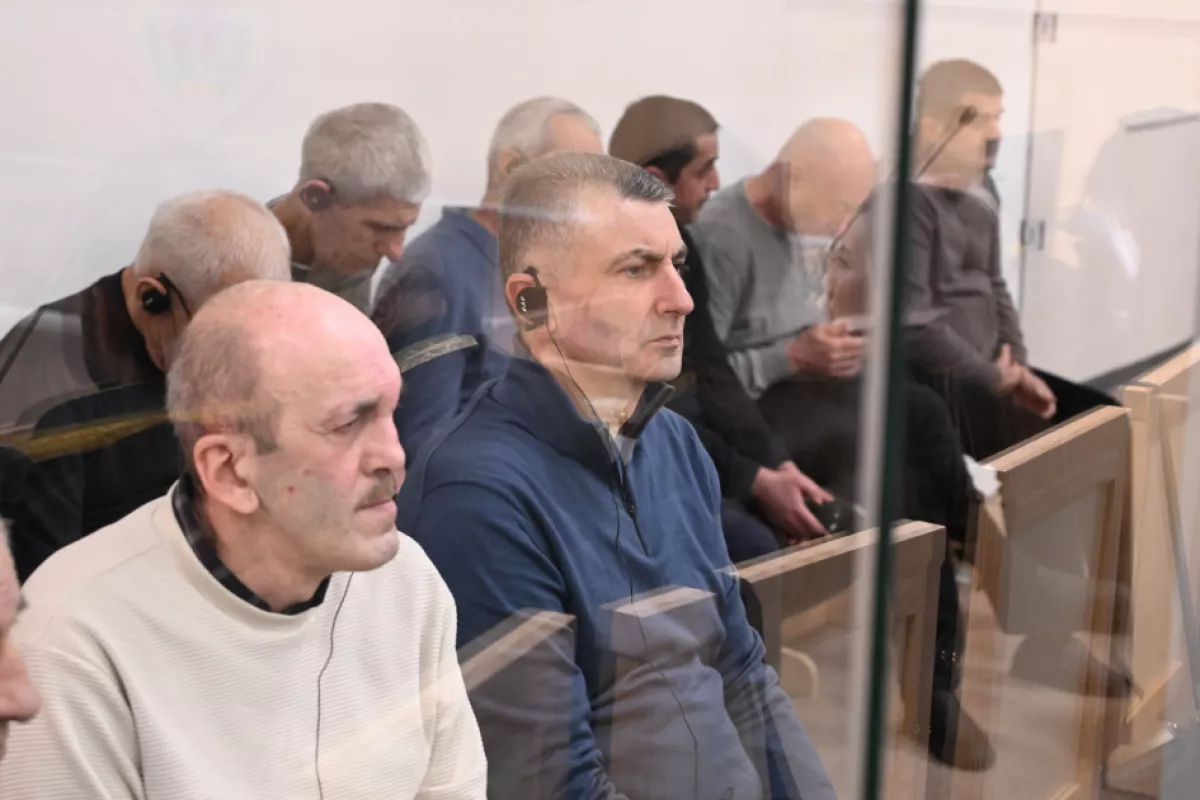Armenia in crosshairs of justice: First day of historic trial in Baku Details
On January 17, an open trial commenced concerning crimes against peace and humanity, war crimes, including the conduct of an aggressive war, genocide, forced displacement of the population, persecution, torture, military looting, and other illegal acts committed by the state of Armenia, its armed forces, as well as the illegal armed formations of the so-called "Nagorno-Karabakh Republic" created in Azerbaijan's territories occupied by Armenia, against Azerbaijan and the Azerbaijani people.
This process primarily aims to establish, through judicial means, the state responsibility of Armenia as an occupying and aggressive state, as well as its other illegal actions, Caliber.Az reports via Azertag.
The preliminary hearing was held at the Baku Military Court located in the Baku Court Complex, presided over by Judge Zeynal Agayev, with the participation of judges Jamal Ramazanov and Anar Rzayev, and reserve judge Gunel Samadova. The defendants were provided with translators fluent in Armenian and defence lawyers for legal representation.
First, the interpreters were introduced, and they were informed about the legal requirements, including their rights and responsibilities. The court also clarified whether the defendants, the interpreters, or other participants in the proceedings had any objections to the composition of the court or to one another.
Next, the defence lawyers for the defendants were introduced. Six prosecutors participated in the trial as representatives of the state prosecution, while the Head of the Cabinet of Ministers' Office, Rufat Mammadov, represented the Republic of Azerbaijan as the victim.
It was noted that the case involves more than 531,000 victims and their representatives.
The judge stated that the defendants were informed of their rights and responsibilities in Armenian. Additionally, their rights and responsibilities were reiterated during the court session.
Subsequently, a recess was announced in the trial.
After the recess, A. Harutyunyan addressed the court, requesting permission to speak. The judge granted him the floor.
A. Harutyunyan made a statement, expressing regret over his remarks regarding the missile attacks on Ganja during the 44-day war. He said:
“There is a perception among the Azerbaijani people that I issued this order. This decision was not made by me. Yes, I made a statement regarding this incident at the time, but I now regret that statement and apologise. I neither had the authority nor the capacity to express an opinion on such matters. I explained during my testimony to the investigation why I made that statement at the time.”
The court hearing was then adjourned until January 21.
It should be noted that over 350 individuals, including victims, their representatives, and legal heirs, were present in the courtroom.
To recap, 15 individuals have been charged with crimes committed by the Republic of Armenia and its armed forces, as well as by the illegal "Nagorno-Karabakh Republic" and its unlawful armed formations established by Armenia. The accused include Arayik Vladimiri Harutyunyan, Arkadi Arshaviri Ghukasyan, Bako Sahaki Sahakyan, Davit Rubeni Ishkhanyan, Davit Azatini Manukyan, Davit Klimi Babayan, Levon Henrikovich Mnatsakanyan, Vasili Ivani Beglaryan, Erik Roberti Ghazaryan, Davit Nelsoni Allahverdyan, Gurgen Homeri Stepanyan, Levon Romiki Balayan, Madat Arakelovich Babayan, Garik Grigori Martirosyan, and Melikset Vladimiri Pashayan.
They are accused under the following articles of the Criminal Code of the Republic of Azerbaijan: Article 100: Planning, preparing, initiating, and waging an aggressive war; Article 102: Attacks against persons or organisations enjoying international protection; Article 103: Genocide; Article 105: Extermination of the population; Article 106: Slavery; Article 107: Deportation or forced displacement of the population; Article 109: Persecution; Article 110: Enforced disappearance; Article 112: Unlawful deprivation of liberty contrary to international law; Article 113: Torture; Article 114: Mercenary activities; Article 115: Violations of the laws and customs of war; Article 116: Violations of international humanitarian law during armed conflict; Article 118: Military looting; Article 120: Intentional murder; Article 192: Illegal entrepreneurship; Article 214: Terrorism; Article 214-1: Financing terrorism; Article 218: Creation of a criminal organisation; Article 228: Illegal acquisition, transfer, sale, storage, transportation, or possession of weapons, ammunition, explosives, and devices; Article 270-1: Acts threatening aviation security; Article 277: Assassination attempts on statesmen or public figures; Article 278: Violent seizure or retention of power, or violent alteration of the constitutional order; Article 279: Creation of armed groups or units not provided for by law.
Subsequently, the preliminary hearing of Ruben Vardanyan, a citizen of Armenia accused under the Criminal Code of the Republic of Azerbaijan for charges including torture, mercenary activities, violations of the laws and customs of war, terrorism, and financing terrorism, was held.
The initial hearing, conducted openly, took place at the administrative building of the Baku Military Court within the Baku Court Complex, presided over by the same panel of judges. Ruben Vardanyan's personal details were verified during the session.
Ruben Vardanyan was provided with a defence lawyer of his choice and a Russian-language interpreter.
Presiding Judge Zeynal Agayev explained the legal requirements to Ruben Vardanyan, including his rights and obligations as a defendant, as well as his right to objection. The judge then inquired whether Vardanyan had any motions to file.
Ruben Vardanyan and his defence lawyer, providing legal assistance under a contract, submitted two motions.
One of the motions submitted by Ruben Vardanyan was to merge his case with the cases of the 15 Armenian nationals accused of committing grave crimes against the Azerbaijani people, so that all cases could be heard in a single proceeding. The other motion requested additional time for the defendant to familiarize himself with the materials of the criminal case.
The prosecutor representing the state objected to the motion for merging the cases, requesting that the court deny it. However, the prosecutor supported the motion for granting additional time for the defendant to review the case materials.
In accordance with the Criminal Procedure Legislation of the Republic of Azerbaijan, as the merging of criminal cases in the same proceeding is not provided for, the court did not grant the motion to merge the cases. However, the motion for additional time to review the case materials was granted.
During the preliminary investigation, Ruben Vardanyan was given sufficient time to review the case materials in a language he understood and to prepare his defence. However, the court, taking the defendant's request into consideration, decided to grant the motion and provided him with an additional 10 days to familiarize himself with the case materials.
The prosecution did not object to granting the defendant additional time to review the case materials.
The court's preparatory hearing will continue on January 27.
Ruben Vardanyan is accused of committing acts under the following articles of the Criminal Code of the Republic of Azerbaijan: Article 100 (planning and waging an aggressive war), Article 107 (deportation or forced displacement of the population), Article 109 (persecution), Article 112 (unlawful deprivation of liberty contrary to international law), Article 113 (torture), Article 114 (mercenarism), Article 115 (violations of the laws and customs of war), Article 116 (violations of international humanitarian law during armed conflicts), Article 214 (terrorism), and Article 214-1 (financing terrorism).
He is also accused of committing acts under the following articles of the Criminal Code of the Republic of Azerbaijan: Article 218 (creation of a criminal association (organization)), Article 228 (illegal acquisition, transfer, sale, storage, transportation, or carrying of firearms, their components, ammunition, explosive substances, and devices), Article 270-1 (acts threatening aviation security), Article 278 (violent seizure of power, retention of power through force, or violent change of the constitutional order of the state), Article 279 (creation of armed groups and units not provided for by law), Article 318 (illegal crossing of the state border of the Republic of Azerbaijan), and other provisions.




